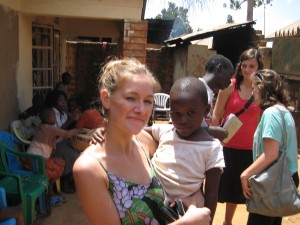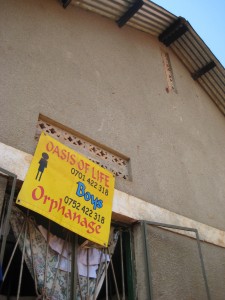By Reta Raymond
Associate Special Features Editor
I arrived in Kampala just two weeks after the opposition party ended its “Walk-to-Work” campaign. They ended the campaign because they determined that the protest had come at a cost of too many lives. Over roughly a month, people protested high fuel and commodity prices by walking to their respective offices instead of driving. The military responded with liberal use of tear gas, rubber bullets, and live ammunition. They killed at least ten civilians, including two children. The government has yet to investigate these deaths.
President Yoweri Museveni’s proposed constitutional amendment was another response to the protests. He vowed that if he could not get parliamentary approval, he would seek a public referendum vote to pass the amendment. The president wished to amend the Constitution so that persons charged with murder, rape, defilement, economic sabotage (a term that is not found in the Penal Code and remains undefined), and rioting could not apply for bail until they served a mandatory 180-day sentence on remand.
What made this proposed amendment so dangerous, I was told, was that charge sheets are often unsubstantiated or have weak evidence to support the charges. Therefore, those opposition party members who were arrested during the Walk to Work Protests could be easily charged with “rioting” and then, pursuant to the amendment, be put in jail for at least six months. This would be a quick and easy way for Museveni to slow the opposition party’s momentum. Then, Museveni could continue doing whatever he pleased without his main opponents inciting protests.
This proposed amendment has drawn sharp criticism from local and international groups, as well as from members of parliament who believe that the proposal would violate fundamental human rights and freedoms. One National Resistance Movement Member of Parliament (“MP”) stated, “In the last meeting, we told him that the move was unconstitutional and would one day fall back on us.”[1] Another MP, Barnabas Tinkasimire, said, “The proposal is against people’s human rights and there are so many oppressive laws being forced on our people which we shall not accept.”[2]
Local attorneys suggest that, if enacted, the amendment would cause disharmony within the 1995 Constitution and would allow persons to be detained without trial. Specifically, it would abrogate several constitutional provisions, including the presumption of innocence, an independent judiciary, the right to be free from detention without trial, the right to bail, the non-derogable right to a fair trial, and the protection of liberty.
I became involved when my boss enlisted me to write a paper that would discuss the constitutional amendment for the purpose of publication by a local group. At first I was bewildered that the President could revoke the right to bail for such a potentially large group of people. What became clear was that he was actually trying to rationalize detention without trial for the “Walk to Work” protestors who opposed his politics. Even though Uganda boasts multiparty elections, such an amendment to the Constitution would effectively silence opposition party members through arbitrary arrest and detention without trial, which may signal that the country is actually a dictatorship.
The President continues to push the amendment to this day. The proposed amendment may go for a public referendum vote, and, at least for show, the result is uncertain. The President has won every election since 1986, but the elections are by no means entirely free and fair. Therefore, the President’s amendment in a public referendum vote would probably be approved.
However, Museveni’s government recently found a new way to silence the opposition group, Activists for Change, who organized the “Walk to Work” campaign. On April 4, 2012, a new law was imposed which declared Activists for Change to be an unlawful society, and made all of its public activities illegal. This enactment came the day before the group’s planned celebration of the “International Day of Police Brutality” in Kampala. Clearly this new law raises a host of constitutional issues, such as the right to assemble under Article 29 of the 1995 Ugandan Constitution.
In the last year, Uganda has seen much unrest in its streets, as the opposition party members were inspired by the change brought about in the Arab Spring. Unfortunately, the protests have not materialized into a regime change like in Egypt and Tunisia, and Museveni’s response has been more akin to Syria’s. However, the opposition party members bravely continue to protest for a better Uganda.



